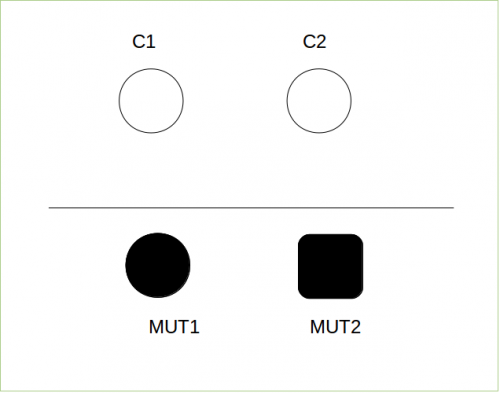Table of Contents
Exercise 6
Data description
Working plan
If we have a clear profile of mutation, we will have to apply these filters on BiERapp to get directly the possible causal mutation. Sometimes we have several interesting profiles of mutations, not only one. For this case we should explore these different scenarios and decide the best prioritization strategy.
To know better this web tool, we propose you two groups of activities:
- In the part A of this activity, we would have to apply individual filters. This action give us information about the effect of each filter (maybe there are some filters more powerful than other). After each filtering, we have to clear the filter to apply the next one.
- In the part B of this exercise, we have a real selection where we combine several filters at the same time. It is interesting to know how the number of variants is reducing, when applying a progressive group of filters (without deleting the previous filter). We want to know the accumulative effect of several filters (all together).
How many variants do you detect for each scenario?
A. Individual filters
- Total number of variants without filters
- Description of variants. How many SNVs and INDELs do we have?
- Reference for all controls and heterozygous variant for all cases.
- Reference or heterozygous variant for all controls and homozygous variant for all cases.
B. Progressive selection
- We have several clues about our candidate variants:
- Reference or heterozygous variant for all controls and homozygous variant for all cases (could you recuperate this filter from the funnel icon without repeating this action again.
- We search variants with MAF < 0.01 (for all populations in 1000 Genomes phase 3) because it is a rare disease.
- How many variants do you have including both characteristics? Could you visualize it from the Genomic browser?
- We want to detect a protector modifier:
- Reference for all mutants and variant (0/1 or 1/1) for all controls.
- PhyloP < 0.01
- Variants in PSMC1.
- How many consequence types do you find for this variant?
Solutions
Some of these solutions could be different when having updated databases
A. Individual filters
- 39996 variants
- 36459 SNVs, 3517 INDELs
- Candidate variants: 416
- Candidate variants: 402
B. Progressive selection
- Candidate variants: 2214 → 1
- Candidate variants: 416 → 150 → 1 (9 consequence type terms)
